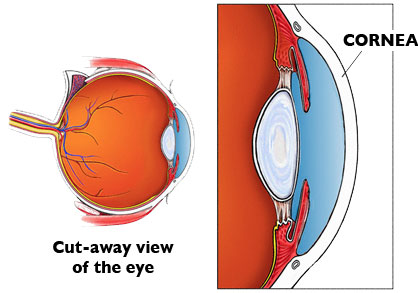Get in Touch
Give us a phone call at (970) 256-0400 Monday – Friday, 8am-5pm to schedule a consultation.
Search
What is the cornea? The cornea is the clear dome-like structure that covers the iris, or colored part of your eye. The cornea is clear to allow light to pass through and focus on the back of the eye. The cornea is susceptible to disease and trauma.
Correcting corneal conditions may or may not require surgery. That is why it is so critical to have a quality cornea specialist to help guide you in deciding your best treatment options. These can be as simple as a small scratch or as complex as a cornea transplant.


ICON’s fellowship-trained ophthalmologists provide industry-leading care using the latest, advanced technology and techniques.

For the treatment of keratoconus and other corneal conditions, your surgeon may recommend the use of Intacs. Intacs are micro-thin, prescription inserts that are placed in the peripheral layer of the cornea to help reshape the steep area of the cornea.
Give us a phone call at (970) 256-0400 Monday – Friday, 8am-5pm to schedule a consultation.